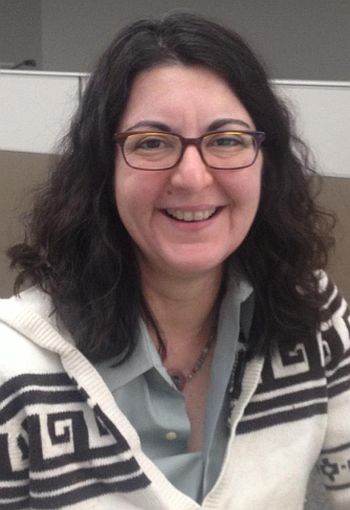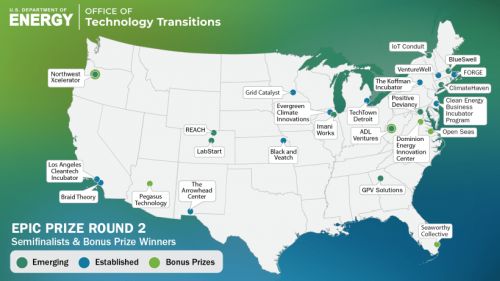By GREGORY ZELLER //
One of Long Island’s most successful business-incubation programs has just pocketed a cool 50 grand – and moved closer to even bigger rewards in a national startup-accelerator competition.

Stony Brook University’s Clean Energy Business Incubator Program – which launched in 2011 to help clean-energy innovators refine their tech, formulate a business plan and get to market in a demanding, ever-evolving industry – is one of 24 incubators and accelerators named semifinalists in the U.S. Department of Energy’s EPIC Prize competition (officially, the American-Made Network’s Energy Program for Innovation Clusters Prize).
The 24 programs each earn $50,000 awards and advance to the EPIC Prize’s second round, where they have four months to implement their proposed programs.
At CEBIP, attention is focused on the proposed Clean Energy Technology Transfer program (CETX, for short), which will answer what CEBIP Executive Director Heidi Anderson considers a critical energy-innovation need.

Heidi Anderson: Earlier early-stage intervention.
“Over the years, we’ve discovered a gap in services that has existed in various forms, regarding getting technology transferred from laboratories and universities to commercial markets,” Anderson said. “Basically, it’s about whether they’ve thought about whether a technology should even commercialize or try to become on entity.”
Enter CETX, which will function at the “pre-incubation stage” – a clearing house, of sorts, designed specifically for what Anderson describes as innovators with intriguing ideas and no clue about commercial prospects or marketability.
“The clean-energy ecosystem has grown to a point where even an incubator like CEBIP doesn’t just accept companies with just a concept,” the exec noted. “They have to have at least some idea about their market fit and market value.”
By giving innovators such ideas – and weeding out neat tech with catastrophic commercialization flaws – CETX aims to fill that critical gap between the commercial world and researchers at universities and national laboratories.
The program’s pilot, however, will focus exclusively on national lab R&D – a requirement of the EPIC Prize competition, according to Anderson.
“The Department of Energy wanted this one to focus on commercializing clean energy solutions that are based on hard tech coming from national laboratories,” she noted. “That’s pretty specific.
“While we believe the gap exists for universities and national laboratories, our pilot will focus on national labs,” Anderson added. “Stony Brook has a great relationship with Brookhaven National Laboratory, so we’re having conversations with them and hoping to start that pilot soon.”

Good company: CEBIP faces stiff competition for the American-Made EPIC Prize.
The Round 2 stakes are high: From the 24 competitors – including 10 “Established” operations (CEBIP among them), 10 “Emerging” operations and four “bonus prize” winners – 10 finalists will earn $100,000 awards and move on to the competition’s final phase.
In that ultimate round, the nation’s best energy-focused business incubators and accelerators will be tasked with proving out their energy startup incubation efforts.
Hopes are high at CEBIP, which prepared a 90-second video presentation and other materials for its comprehensive Round 1 submission and is already knee-deep in Round 2 strategizing.
The CETX proposal is a “viable solution,” according to Anderson, that can help innovators “see if there’s any merit in the market, see if a business model can be formed and, if so, help them explore what [accelerator] programs are available to them in the clean-energy space, like a CEBIP incubator.”
And its benefits are certainly not limited to CEBIP. Anderson is planning a Round 2 regional committee with other Long Island universities and laboratories – institutions that might ultimately benefit from the CETX program and unite along a regional clean energy incubation pipeline.
But first things first, the executive director noted.
“[Making Round 2] feels great,” Anderson told Innovate Long Island. “The EPIC Prize is a very exciting mindset that fits CEBIP very well.
“The American-Made Network and its award competitions have become the funding arm for the Department of Energy’s early-stage timeline,” she added. “It’s very aggressive, which also fits CEBIP.
“When we have a clear vision, we can really make things happen quickly.”

